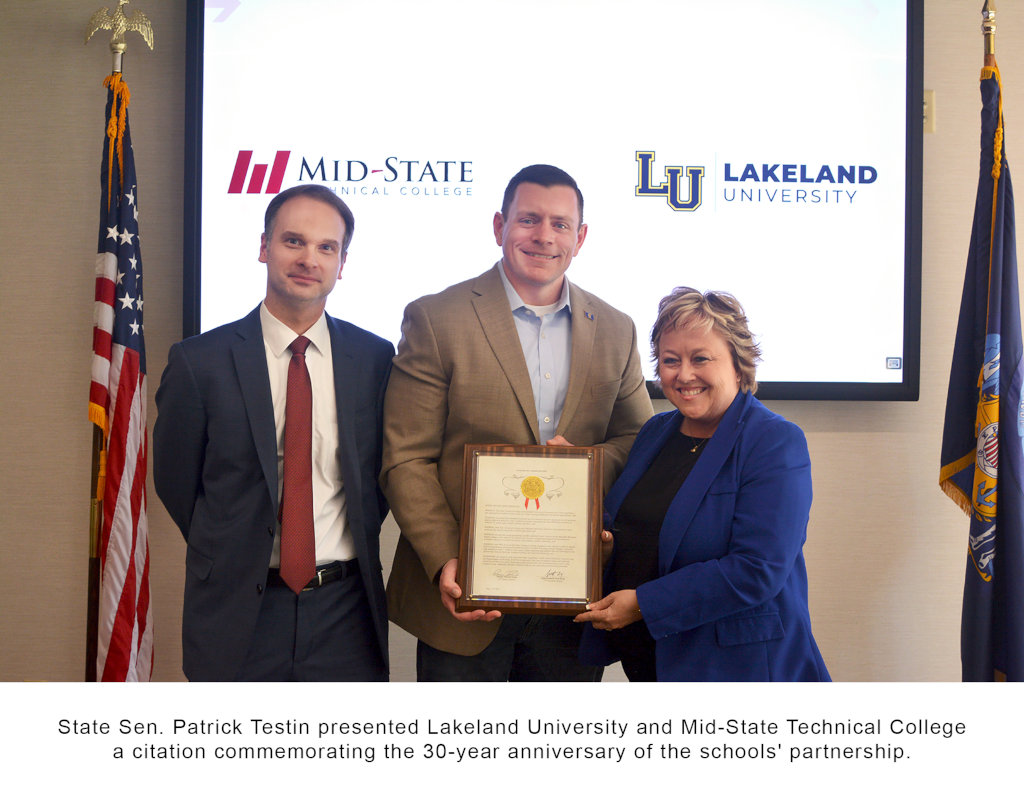Mid-State and Lakeland University celebrate 30-year partnership, highlight liberal arts transfer
Lakeland University and Mid-State Technical College on May 17 celebrated 30 years of working together, as well as creation of the latest pathway to help students earn a college education.
Lakeland and MSTC recently signed an agreement that allows students who earn an Associate of Arts or Associate of Science degree in Liberal Arts at Mid-State to transfer to Lakeland with junior standing and apply all their credits toward a Lakeland bachelor’s degree. The new transfer agreement is expected to go into effect this fall.
MSTC received approved from the UW Board of Regents on April 8 to offer the two-year liberal arts degrees. Final approval by the Higher Learning Commission to offer the degrees is pending.
MSTC grads who enroll in a bachelor's degree program with Lakeland will receive a 20% tuition discount.
The new agreements are the latest chapter in Lakeland’s long history of successful partnerships with Wisconsin’s technical colleges. Lakeland was among the first four-year colleagues in Wisconsin to develop pathways for technical college graduates to complete a bachelor’s degree.
Through special pre-major pathways, MSTC graduates will have a wide variety of academic options for their four-year degree at Lakeland, including accounting, analytics, business administration, communication, computer science, criminal justice, management information systems, marketing and psychology.
“The degrees available through these new agreements enable technical colleges to enhance the educational options they provide to their communities,” said Lakeland President Beth Borgen. “By partnering with the technical colleges in this way, we open college options to new populations of students who have the potential and ability to pursue post-secondary education. This new level of access benefits students and their families, local schools and Wisconsin communities.
“It’s exciting to see private and public institutions working together for a common good – helping our students achieve their educational goals while aligning with regional workforce development needs.”
